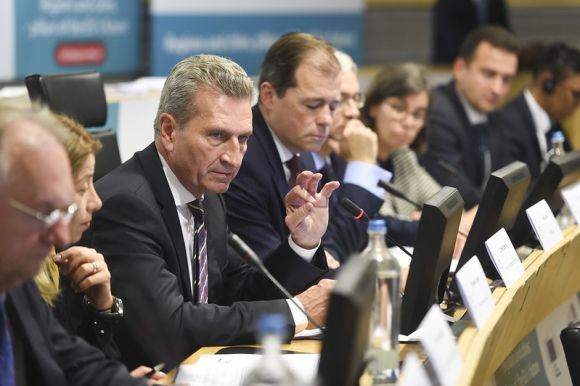
Following the Paris Agreement, the EU has committed to reducing annual greenhouse gas emissions by 40% over 1990 levels by the year 2030, and by at least 80% by 2050. Cutting back coal-fired power generation is an important element in this context, and this will have tangible economic and social effects on Europe's coal-producing regions. Lignite and coal are currently mined in 41 NUTS-2 regions, and there are coal-fired power stations in 103 NUTS-2 regions. The structural change initiated by energy policy decisions poses enormous challenges for the regions affected, which need substantial support if the phasing-out of coal is to be successful. Apart from national support, Cohesion Policy, with its unique delivery mechanism, could also play a key role. Success in energy transformation depends on the ability of local and regional authorities to manage this change at local and regional level.
The Coal Regions High-Level Conference hosted more than 200 participants, together with political representatives from the EU institutions and coal regions in Germany, Poland, the Czech Republic, Spain, Romania and Bulgaria. The conference provided a unique opportunity to discuss the need for a structural response to the transition of coal regions and the potential role of cohesion policy in this. The content of regional exit strategies focussing on specific needs at regional level was also addressed.
In the course of the fruitful debate, the following aspects were stressed:
- the close link between the European Union committing to ambitious climate targets and the local consequences thereof for the 41 coal regions in Europe;
- the need for structural support for these regions throughout the European Union by means of additional resources allocated through a newly created Just Transition Fund supplementing cohesion funds within the future multiannual financial framework;
- the importance of shared management with the close involvement of cities and regions as well as the social partners and civil society in order to find a long term solution; and
- the need for robust co-operation at European level between all levels of government to exchange experience and promote new solutions.
For a record of the conference, visit the #EURegionsWeek programme webpage!



